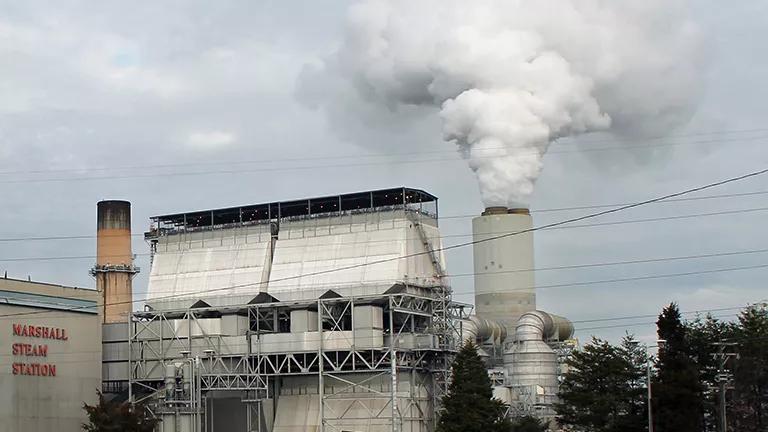
Residents of my state, North Carolina, got some much-needed good news today. We led the nation in clean energy and clean transportation jobs in the 4th quarter of 2012, and came in second only to California for the year as a whole. That information is contained in a new report by Environmental Entrepreneurs, a nationwide network of business leaders advocating for policies that benefit both the economy and the environment. (E2 is an NRDC affiliate.)
Given that the unemployment rate here is a dismal 9.4 percent—1.6 percent above the already high national average—and North Carolina lost more than 100,000 jobs between 2007 and 2012, this news allows us a small sigh of relief. The 10,800 new clean energy & transportation jobs E2 tracked here in 2012 are some of the more than 21,000 clean energy & transportation jobs that have sprung up across the state in the last five years. These are good-paying jobs in fields like public transportation, solar and wind farms, electric vehicle charging stations, and solar and wind power manufacturing.
The 6.4 megawatt Shannon solar farm in Robeson County, North Carolina, last spring employed 120 workers recruited through the county's Youth Chamber of Commerce.
But much of that progress is threatened by legislation that Rep. Mike Hager, chair of the Public Utilities Committee, promises to introduce soon in the state legislature. Hager is a member of ALEC, the American Legislative Exchange Council, a fossil-fuel-industry-backed organization of conservative state legislators who are attempting to overturn or weaken state renewable energy standards nationwide. Hager’s proposed legislation would halt further implementation of North Carolina’s law, which passed with overwhelming bipartisan support in 2007. It requires utilities to get 12.5 percent of their electricity from renewable sources—much of it generated in-state—and energy efficiency by 2021.
North Carolinians support the law by large margins; 70 percent called it a “good idea” in a recent poll, while only 17 percent opposed it. What will this mean for us if Hager and ALEC succeed? Without the standard we will have:
• Increased energy costs: A new study out by two leading national research institutes finds energy-efficiency measures supported by the law have already reduced ratepayer costs and, by 2026, will cut spending on electricity by $173 million.
• Declining tax revenue: Since 2007, renewable energy projects have contributed $113 million to local and state coffers, helping to fund vital public services like education and public safety. Without this tax revenue, services will likely be cut.
• Increased state and local government spending on energy: To date, energy efficiency programs incentivized by the renewable energy standard have saved government an estimated $427 million. These incentives allow government to spend less on energy waste and more on programs we North Carolinians need.
• A significant decline in renewable energy’s contribution to state economic growth: Between 2007 and 2012, $1.7 billion in clean energy development led to $2.56 billion in associated spending in our state. Rural counties, such as Davidson, Robeson and Person, benefitted greatly. Without the incentives the renewable energy standard provides, those numbers will drop, further dampening the state’s economic recovery.
The good news is that ALEC isn’t winning. The organization’s faulty economic analysis, which claims renewable energy standards increase energy costs, has been widely debunked. And even some heavily Republican legislatures are starting to realize that state renewable energy standards offer great benefits. In Kansas, where ALEC outsiders recently tried to both weaken and repeal the state standard, many Republican legislators saw that wind farms were helping keep family farms and ranches afloat during the drought that’s lasted there for more than two years. In fact, since the standard took effect in late 2010, wind farms there have created 12,300 jobs, directed $13.7 million in payments to landowners, and contributed $10.4 million to local communities. Rather than approve ALEC-sponsored legislation that would have repealed the state renewable energy law, the Kansas House last week sent the bill back for review, 63-59. (Republicans there outnumber Democrats 92 to 33.) And a state Senate bill that would have delayed the standard was defeated 23-17. (Republicans seriously outnumber Democrats in the state Senate, too, 32 to 8.)
Renewable energy, energy efficiency, public transportation and the state policies that support them are winning formulas for North Carolina, as E2’s new Clean Energy Jobs reports show.
With our state facing some of the highest unemployment rates in the nation, why mess with that success?




